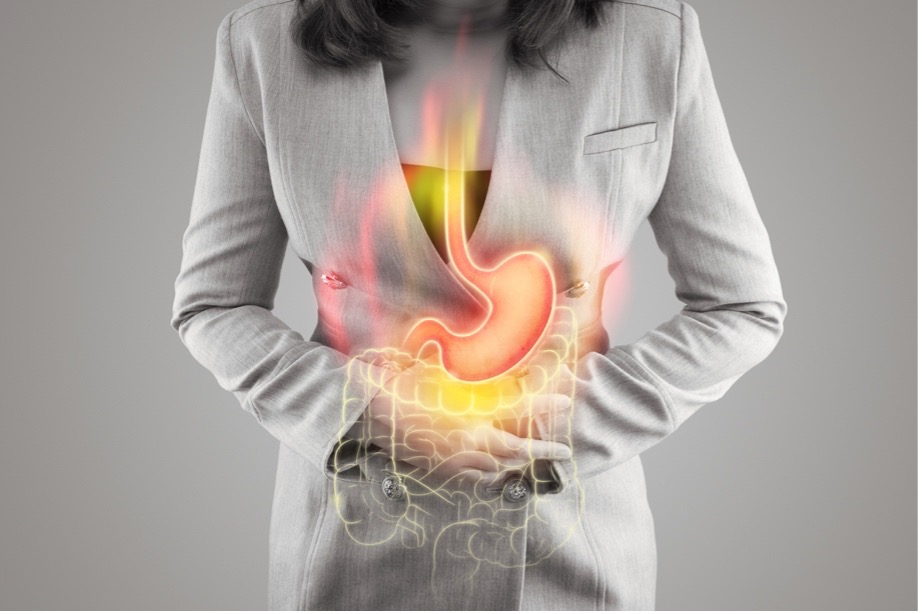Stomach acid, also known as gastric acid, plays a crucial role in the digestive process. It helps break down food and aids in the absorption of nutrients. However, when there is an imbalance in stomach acid levels, it can lead to various health issues such as acid reflux, heartburn, and ulcers.
In this article, we will delve deeper into understanding stomach acid, its link to reflux, exploring its pH levels, common symptoms of imbalance, and the causes behind excess stomach acid. So, let’s get started!
The Link Between Stomach Acid and Reflux

Acid reflux, also known as gastroesophageal reflux disease (GERD), is a condition where stomach acid flows back up into the esophagus. This happens when the lower esophageal sphincter (LES), a muscle that acts as a valve between the esophagus and stomach, does not close properly.
The LES is designed to open when food or liquid enters the stomach and then close to prevent the contents from flowing back up. However, if the LES is weak or relaxes too frequently, stomach acid can escape and irritate the lining of the esophagus, causing the burning sensation known as heartburn.
There are several factors that can contribute to the weakening of the LES, including:
- Obesity
- Pregnancy
- Hiatal hernia
- Smoking
- Certain medications, such as aspirin and ibuprofen
- Consuming acidic or spicy foods
- Eating large meals or lying down after eating
Exploring the pH of Stomach Acid
pH is a measure of how acidic or basic a substance is on a scale of 0 to 14. A pH of 7 is considered neutral, while anything below 7 is acidic, and anything above 7 is basic. The pH of stomach acid typically ranges from 1.5 to 3.5, making it highly acidic.
The high acidity of stomach acid is essential for breaking down food and killing harmful bacteria that may enter the digestive system. It also helps activate enzymes that aid in digestion. However, when there is an imbalance in stomach acid levels, it can lead to discomfort and other health issues.
Here’s a breakdown of the pH levels of various substances in the body:
| Substance | pH Level |
|---|---|
| Stomach Acid | 1.5 – 3.5 |
| Lemon Juice | 2.0 |
| Vinegar | 2.4 |
| Orange Juice | 3.5 |
| Coffee | 5.0 |
| Saliva | 6.5 – 7.5 |
| Water | 7.0 |
As you can see, stomach acid is much more acidic than other substances in the body. This is because it needs to be strong enough to break down food and protect the body from harmful pathogens.
Common Symptoms of Stomach Acid Imbalance
When there is an imbalance in stomach acid levels, it can lead to various symptoms, including:
Heartburn
Heartburn is a burning sensation in the chest or throat caused by stomach acid flowing back up into the esophagus. It is the most common symptom of acid reflux and can range from mild to severe.
Regurgitation
Regurgitation is the feeling of acid or food coming back up into the mouth or throat. It can cause a sour or bitter taste and is often accompanied by heartburn.
Nausea and Vomiting
Excess stomach acid can irritate the lining of the stomach, leading to nausea and vomiting. This is more common in people with conditions such as gastritis or peptic ulcers.
Difficulty Swallowing
When stomach acid irritates the esophagus, it can cause inflammation and narrowing of the esophagus, making it difficult to swallow.
Chest Pain
Chest pain is a common symptom of acid reflux and is often mistaken for a heart attack. It is caused by the irritation of the esophagus by stomach acid.
Other Symptoms
Other symptoms of stomach acid imbalance may include bloating, belching, and a feeling of fullness in the upper abdomen.
Causes of Excess Stomach Acid
There are several factors that can contribute to an imbalance in stomach acid levels, including:
Diet
Consuming a diet high in acidic or spicy foods can increase the production of stomach acid. These foods can irritate the lining of the stomach and esophagus, leading to symptoms of acid reflux.
Stress
Stress can affect the digestive system in various ways, including increasing stomach acid production. This can lead to symptoms of acid reflux, especially in people who already have a weakened LES.
Medications
Certain medications, such as non-steroidal anti-inflammatory drugs (NSAIDs) like aspirin and ibuprofen, can irritate the stomach lining and increase stomach acid production. They can also weaken the LES, making it easier for stomach acid to flow back up into the esophagus.
Medical Conditions
Some medical conditions can cause an increase in stomach acid production, including gastritis, peptic ulcers, and Zollinger-Ellison syndrome.
Lifestyle Factors
Lifestyle factors such as smoking, excessive alcohol consumption, and obesity can all contribute to an imbalance in stomach acid levels.
The Pros and Cons of Sleeping on Your Stomach
Stomach acid plays a vital role in the digestive process, but when there is an imbalance in its levels, it can lead to discomfort and other health issues. Understanding the link between stomach acid and reflux, exploring its pH levels, and recognizing the common symptoms and causes of excess stomach acid can help you take steps to maintain a healthy balance.
If you experience frequent symptoms of acid reflux, it is essential to consult your doctor for proper diagnosis and treatment. Making lifestyle changes such as avoiding trigger foods, managing stress, and maintaining a healthy weight can also help alleviate symptoms and promote a healthy digestive system. Remember, prevention is always better than cure when it comes to maintaining good health.


